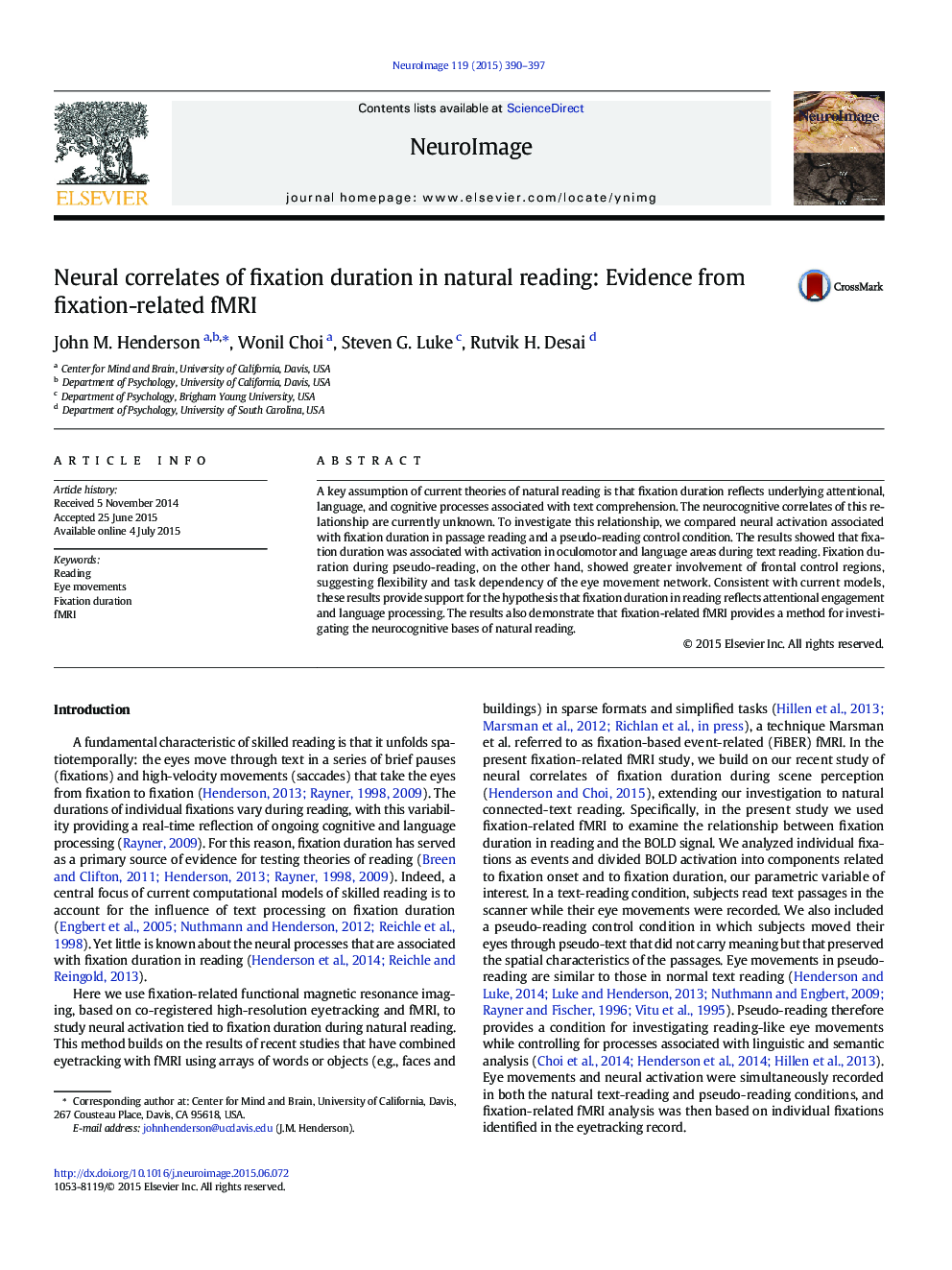| Article ID | Journal | Published Year | Pages | File Type |
|---|---|---|---|---|
| 6024864 | NeuroImage | 2015 | 8 Pages |
â¢Fixation duration (FD) reflects cognitive processes in natural reading.â¢The neurocognitive correlates of this relationship are currently unknown.â¢We investigated this relationship using fixation-related (FIRE) fMRI.â¢We compared FDs in reading and a pseudo-reading control.â¢Results support hypothesis that FD reflects attention and language processing.
A key assumption of current theories of natural reading is that fixation duration reflects underlying attentional, language, and cognitive processes associated with text comprehension. The neurocognitive correlates of this relationship are currently unknown. To investigate this relationship, we compared neural activation associated with fixation duration in passage reading and a pseudo-reading control condition. The results showed that fixation duration was associated with activation in oculomotor and language areas during text reading. Fixation duration during pseudo-reading, on the other hand, showed greater involvement of frontal control regions, suggesting flexibility and task dependency of the eye movement network. Consistent with current models, these results provide support for the hypothesis that fixation duration in reading reflects attentional engagement and language processing. The results also demonstrate that fixation-related fMRI provides a method for investigating the neurocognitive bases of natural reading.
